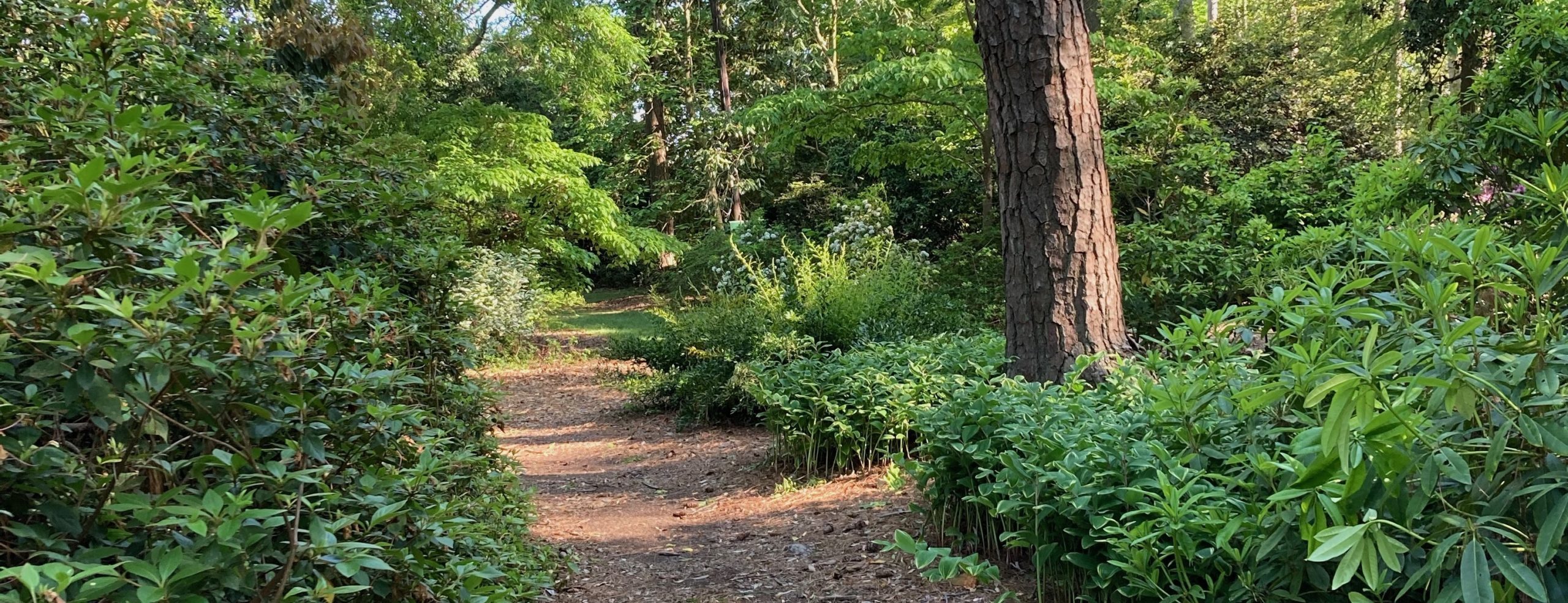Years ago, I visited a Tibetan Buddhist monastery near Woodstock, New York. It was my first visit to a Buddhist temple, and it was glorious — the designs and decoration on the temple itself, the many essentials in its construction (it must face a specific direction; it must have an unobstructed view; there must be running water nearby; etc.), the massive golden Buddha at the far end of the worship space, the multiple full offering bowls across the altars, the hangings, every detail was memorable. But through it all, there was one bit that stood out. My husband and I were among a small group of visitors being guided around the site by a friendly, somewhat distant Buddhist nun. Among the visitors was a Buddhist monk from another temple in another city. I don’t remember his name; I do remember that he was dressed in the saffron and burgundy robes I have always associated with that faith’s clergy. I also remember that he held a string of beads, running them smoothly through his fingers throughout the entire tour. He never spoke, nor asked any question, but simply listened to the nun with a peaceful half-smile on his face the entire time. Finally, at the end of the tour, our guide asked if there were any questions. I raised my hand, and when she called on me, I turned and addressed my question to the quiet monk: “Do you use those beads to pray?”
“Yes,” he smiled, fingering another bead.
“Are you praying now?” I asked.
“I am always praying,” he responded, moving to the next bead without hesitation.
“Even when you sleep?” I queried, astounded.
“Even when I sleep.” Next bead. He must have heard this question before.
As a child, I knew prayer was an important part of my relationship with God. But as an adult, when I converted to Wicca, I began to question that perception. If the Gods are greater than I, surely they knew my thoughts, even before I did, I reasoned. And I stopped praying.
Years later, I found myself in the midst of a period of doubt and longing in my faith. (What serious seeker has not experienced such a time, at least once?) In my frustration, I found myself spontaneously talking to the Divine as if She were a close friend and not a parental figure.
“Look,” I began. “I’m really stuck here, and I could use your help. Where the hell have you been?” And it was as if She was truly there. I felt some of the answers I sought coming, slowly but definitely; and I knew that the rest would follow when it was time. That moment of unplanned prayer brought me a great sense of peace, one I desperately needed at the time. Thinking back on that moment, I was reminded of the poem about the seeker who asked God to speak to her, and a lark began to sing, but she did not hear; she complained that she could not see God in her daily life, and a flower opened at her feet, but she turned away; she cried because she could not feel God’s presence, and a soft breeze caressed her cheek, but went unnoticed.
To this day, I still talk to the Divine in everyday conversational tones as if She is an old friend. I figure She knows me best, so why put on airs? She doesn’t always answer in ways I expect, nor in ways I want. And even silence, or a lack of obvious response is a reply, is it not? Some things we have to learn on our own; the lessons cannot be handed to us any more than we can ride a bicycle simply by watching someone else do it. And for some life circumstances, the only way out is through. In those times, I speak to God as if I am speaking to myself, working out my problems aloud to an “empty” room or van, and knowing She hears. It always helps.
Talking to God, whether aloud or silently, is indeed one way to feel a closer connection to that divine energy. But it is my firm belief that this is only one form of prayer. My mother always taught me that our actions speak louder than our words. With that in mind, I try to live my life as if it were a prayer. After all, what better form of gratitude can we possibly show the Divine than to walk our talk and demonstrate our growth? There seems to me no better way to inspire ourselves to continue along what can be a difficult path than to see for ourselves that we can be taught and, in seeing this, realize that the difficult times have meaning and purpose.
— Drema Deòraich (from April 2008)
